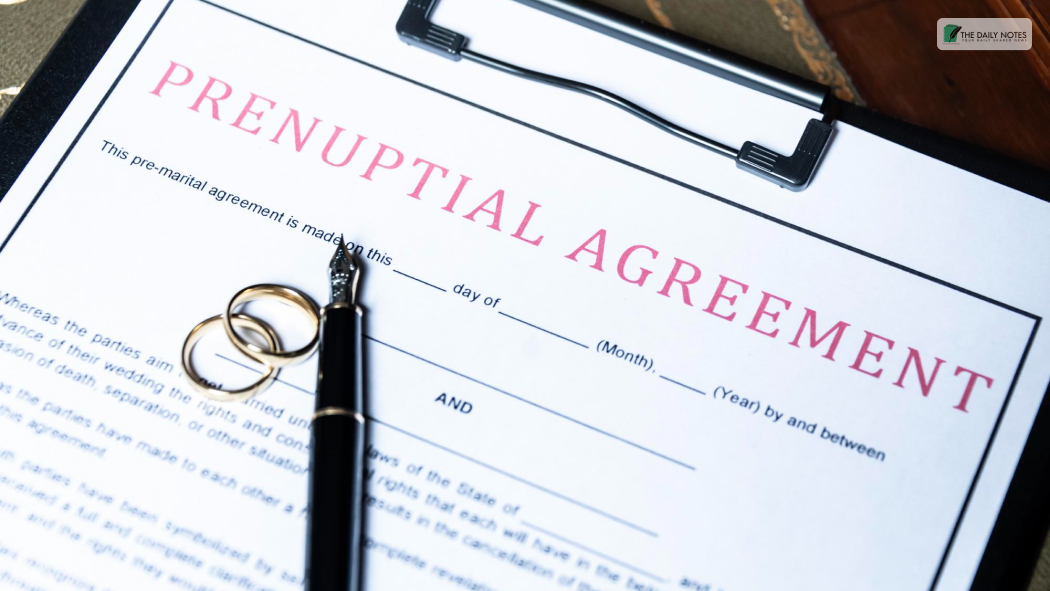When most couples get married, the last thing on their mind is the possibility that they will eventually get divorced. The reality is that no matter how well-intentioned the marriage is, every couple has struggles. Each year, thousands of couples file for divorce – some after just a few months of marriage and others after decades of marriage.
While every marriage and divorce are different, there is one thing that all of them have in common – the intertwining of property and assets. That is why it is so often recommended that couples have a prenuptial agreement written up before marriage. In the event of a divorce, each spouse has some financial security and control over their future.
Not sure where to start? A Washington, D.C., family lawyer can help.
What is a Prenuptial Agreement?

A prenuptial agreement, or prenup, is a contract between two individuals planning to marry. The primary purpose of a prenup is to address what will happen to property and assets if the couple divorces.
For example, if one of you owns a home and the other owns a vacation house, which one will obtain ownership rights to each if you divorce?
But a prenup is far more than just managing who gets what property. It also addresses issues like:
- Separate assets and debts
- Marital assets and debts (those acquired by both spouses together)
- Details of property division
- Details of alimony terms
- Details regarding children from previous relationships
- Protections for each spouse from the other’s debts
Who Needs a Prenup?
Most often, when we hear the word “prenup,” it is in a news story about a celebrity couple getting divorced. But the truth is that prenups are not just for the rich and famous.
They apply to almost everyone. Some of the reasons why couples choose to have a prenup include:
- They want to establish what will happen to their property if they get divorced, but also if they were to die. If they have children from a previous relationship, a prenup can help ensure that they are provided for without any argument.
- Many couples simply want to clarify their financial rights and responsibilities. If one spouse has, for example, hefty student loan debt, the other spouse may want to make sure they aren’t responsible for repayment if they get divorced.
- A prenup is useful for couples who want to avoid arguments or negotiations during a divorce. A prenup, property division, and many other aspects of divorce are already outlined, which makes the entire process more streamlined.
What Makes a Prenup Valid?
If you and your fiancé are considering having a prenup written up, you should contact a family lawyer to help. It is important to ensure that your documents are in order so the court will consider them valid. To be legally valid, your prenup must be:
- In writing
- Signed by both parties without duress
- Signed before witnesses
- Signed only after both parties have time to consider the terms and discuss adjustments
The prenup also must contain only information that is complete and accurate. There must not be any illegal clauses or terms.
Getting Help with Prenup Questions:
If you and your fiancé are considering a prenup but aren’t sure if it is the right thing to do, you should contact a family lawyer for guidance.
A family lawyer will review your situation together, and each of you as individuals, to determine if a prenup is advisable. If so, your lawyer can help you ensure it is properly drafted and legally valid.
Yes, considering what would happen if you and your soon-to-be spouse decided to call it quits is difficult, but it is better to be prepared. Without making preparations, if you get divorced, you could find yourself in a contentious battle over property, assets, or debts.
What do Prenup Agreements Look Like Elsewhere?
The prenuptial agreement in India for instance, looks different. Prenuptial agreements in India are not easily enforceable by default under Indian marriage laws as marriages are not considered a contract and instead mean a social institutions.
Indian laws particularly the Hindu Marriage Act and the special marriage act do not recognize prenuptial as binding documents.
However, as per the 1872 Indian Contract Act, a prime-up can be considered as long as it satisfies the requirement of a valid contract. Some elements of this contract include lawful object-free consent among others.
The court may even look at prenups for reference but they are not binding in the same way as other countries like the United States of America.
In addition, prenuptial agreements in India are uncommon due to the cultural sensitivities around marriage. Many view marriage as a sacred bond and planning for a potential divorce is frowned upon in society.
Prenuptial agreements in India are not legally enforceable in the strict sense under marriage laws in the country. However, in the US prenuptials are legally binding and enforceable in many States provided they meet the legal criteria.
Another contrasting characteristic between prenuptial agreements in India and the US is that the former is uncommon due to cultural beliefs surrounding marriage whereas in the US prenuptials are widely accepted especially in those with significant assets.
The quotes in India have broad discretion over acid division and alimony with no regard to an agreement. In contrast, quotes in the US uphold prenups, especially if the agreement is fair and both parties have proper representation.
A Prenuptial Agreement in India – is it better?
Whether you live in the US or any other country than India it is hard to deny that this striking contrast is surprising.
In a world where celebrity’s prenups make the front page of the news it is hard to believe that in some parts of the world, it is frowned upon.
As a reader represent this question to you do you think the beliefs of countries such as India are better than the ones we have here specifically surrounding marriage and bonds between two people?
Read Also:




























